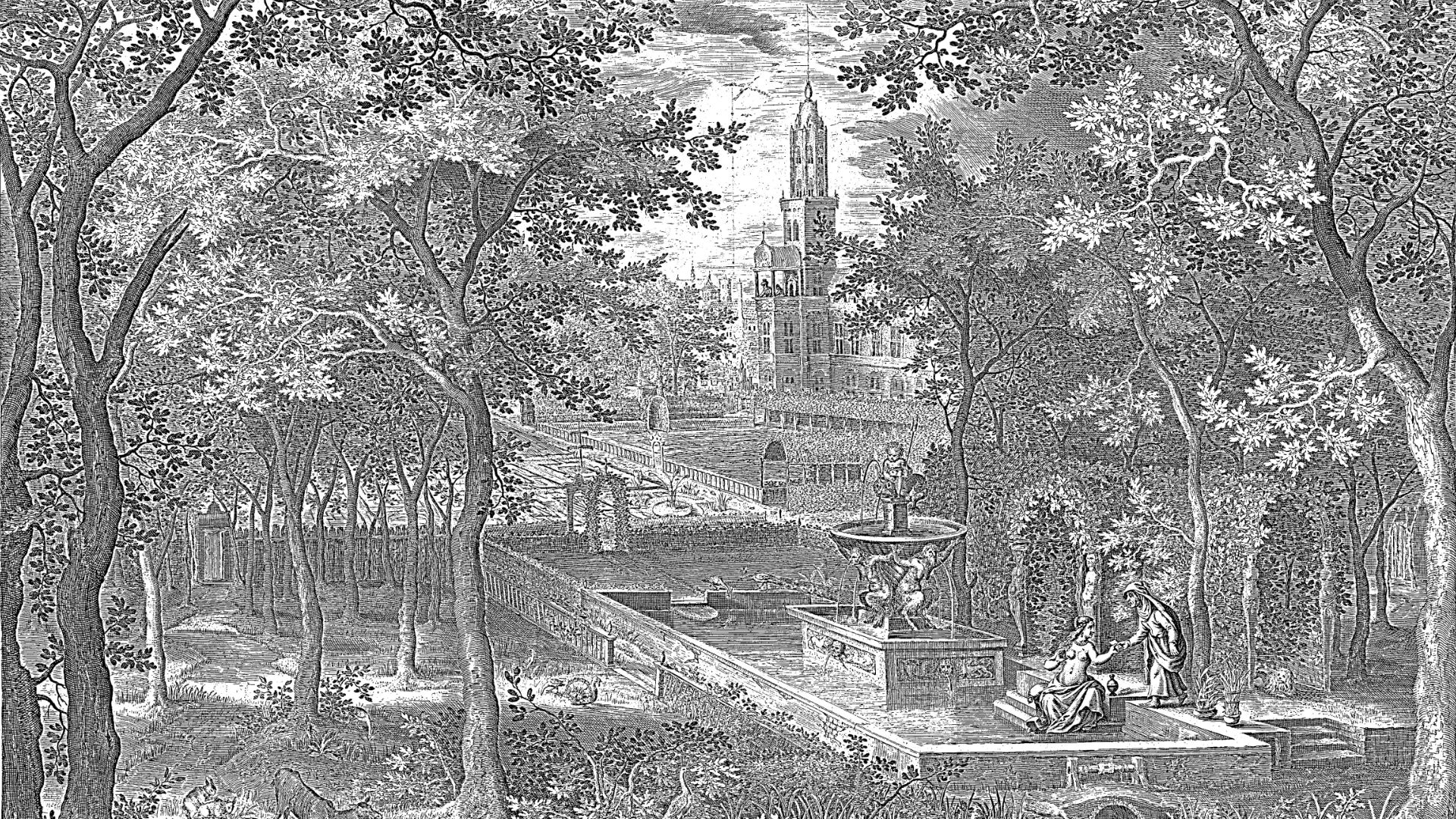Never Underestimate Sin or Grace (2 Samuel 11-12)

Big Idea: Never underestimate the power of sin, our ability to rationalize sin, or the consequences of sin. But never underestimate God’s grace.
If you boil down David’s life — his 70-year life — down to just a few events, you’d probably pick these:
- First: David killed the giant Goliath with five smooth stones. It seems like almost everyone has heard this story. Malcolm Gladwell even wrote a book about it. We frequently talk about David and Goliath when it comes to the little guy beating the big guy. It’s one of the highlights of David’s early life, and it points us to our need for someone to deliver us. It’s a story that points us to Jesus.
- Second: David wants to build God a house, but God decides instead to build David a house. This is a less well-known story even among Christians who know their Bible, but it shouldn’t be. It teaches us that God takes the initiative, not us. Even more importantly, it introduces us to the Davidic covenant, in which God promises that David’s throne would be established forever, a promise that’s fulfilled in Jesus, a descendent of David.
- Three: the story we’re looking at today.
These three events don’t represent the total of David’s life, of course. But they’re probably the three most well-known and important incidents of his life, with quite a few runners-up.
Here’s the hardest story of David’s life to look at. It’s one of the most famous stories in the Bible, and it teaches us to never underestimate four things.
First: Never underestimate the power of sin.
The sin is described in just a few verses. David sees Bathsheba. David sends for Bathsheba. And then David sleeps with Bathsheba. It’s shocking how quickly and easily it happens.
If you’re like me, you face some cognitive dissonance as you read this passage.
David was a man after God’s own heart. David was born again. David wrote divinely inspired scripture. David was blessed with wisdom and power. David enjoyed an everlasting covenant relationship with God. (John Piper)
This is the man who wrote, “I delight to do your will, O my God; your law is within my heart” (Psalm 40:8).
So what chance do the rest of us have?
For a long time, I thought that sin was something that bad people do. Something happened to me when I was a young adult. One of my favorite preachers fell into sin and disqualified himself from ministry. He wasn’t one of the slick televangelists. He was one of the good guys. I remember being shocked: was I wrong about him? How could this happen to a guy like him?
Listen to what that man wrote in a section on myths we believe that put us in danger:
A second myth presumes that a broken-world experience can never happen to me. This is a version of the typically human notion that we can live above all the odds, take all the risks, and avoid all the consequences.
We’re never more in danger when we think it can’t happen to us. Any of us is capable of the most heinous sin. In fact, the more we think we’re not in danger, the more danger we’re in. As Paul said in 1 Corinthians 10:12, “Let anyone who thinks that he stands take heed lest he fall.”
I used to listen to a man I really respect. He’d preach every week and I’d listen to his sermons as soon as they came out. He’s retired now. I remember him saying something like this: I’m not hiding any secrets. I’m not covering anything up. But I’m about five minutes from completely destroying my life.
What did he mean by this? He understood the power of sin. He understood that all of us — even the best of us — are not above making catastrophic choices. He understood that sin will kill us. Sin’s not safe. Sin will destroy everything you have. He understood what Tim Keller says:
The seeds of the most terrible possible atrocities, the capability of the worst possible deeds, live in every human heart, even the best people, even people who are converted by God. Whoever you are, even the best people who have ever lived are capable of this. The seeds of those things, the seeds of the worst possible deeds are right now in your heart.
Do you understand this? If David could fall into this sin, it shows the power of sin, and that we’re in danger too.
Here’s the next thing that this story teaches us.
Second: Never underestimate our ability to rationalize sin.
What does David do? He covers up. When Bathsheba gets pregnant, he concocts a plan to cover up his sin. When that fails, he compounds the problem by having Bathsheba’s husband killed, along with other soldiers too. When Nathan tells a story with parallels to David’s own sin, David is furious with the wrongdoer. He can see the sin in others so clearly. But David can’t see the sin in himself.
Notice, by the way, how sin spreads. You start with a small sin, but it doesn’t stay that way. Sin compounds, and the interest rate is very good. Before you know it, you’ve got a bunch of sin to deal with when it only started with one.
It takes a dramatic intervention from Nathan the prophet for David to finally get to the point of recognizing what he has done. David lied to himself to cover up his sin, which is exactly what we tend to do too.
Never underestimate the power of sin, and never underestimate our ability to rationalize sin.
When we sin, we face a choice:
- Option one: to recognize the sin and our own responsibility in committing that sin.
- Option two: to deny the seriousness of that sin and rationalize it.
Option one is hard. And so we become experts in rationalizing what we’ve done. How do we do this? We justify or excuse our behavior. We had our reasons. There were extenuating circumstances. What we did was wrong, but when you look at the whole situation, things aren’t quite as bad as they first appear.
“Nobody sins, and certainly nobody sins like that, without spinning a kind of web around you of rationalizations and defense mechanisms and self-deceptions,” says Tim Keller. He’s right.
One prominent minister engaged in abusive behavior for over a decade and used ministry funds to enable that behavior. That is shocking. What is even more shocking is how he rationalized his behavior as a reward for his service to God.
That’s what sin does. First, it overpowers us. Then, because we can’t face the severity of our sin, we deceive ourselves and rationalize sin.
I keep seeing this over and over again. Sin is powerful. Even the best of us can fall into sin. And when we do, it’s so easy to minimize or justify our behavior and become blind to our sin. Jeremiah 17:9 speaks to the reality of our ability to deceive ourselves: “The heart is deceitful above all things, and desperately sick; who can understand it? “
We need to ask God to give us eyes to see our blindness. What is it in our lives that we’re rationalizing? Is there anything in your life that you know is wrong, but you’re justifying? Where are you lying to yourself? Where are you making excuses for something you know is wrong? Because we’re prone to self-deception, who are you allowing into your life who can challenge you and point out your sins? Are you asking God to reveal your sins?
Never underestimate the power of sin. Never underestimate our ability to rationalize sin.
Third: Never underestimate the destruction of sin.
This is why sin looks so good. Sin promises pleasure with no consequences. It’s like a buy now, pay never plan upfront. But then you sin, and the bill comes due, and the bill is always way more than you and I can ever afford.
Here’s the thing: you can choose whether or not to fall into sin. But once you fall into sin, you can’t control the consequences. And the consequences can be severe.
Look at what happens in David’s life. David’s sin had massive consequences for himself, for others, and for the entire nation. God describes some of the consequences in 2 Samuel 12:10-14:
Now therefore the sword shall never depart from your house, because you have despised me and have taken the wife of Uriah the Hittite to be your wife.’ Thus says the LORD, ‘Behold, I will raise up evil against you out of your own house. And I will take your wives before your eyes and give them to your neighbor, and he shall lie with your wives in the sight of this sun. For you did it secretly, but I will do this thing before all Israel and before the sun.’ ” David said to Nathan, “I have sinned against the LORD.” And Nathan said to David, “The LORD also has put away your sin; you shall not die. Nevertheless, because by this deed you have utterly scorned the LORD, the child who is born to you shall die.”
A lost child. Conflict and sexual immorality within his own household. Continual war and conflict. Ultimately, the rest of David’s reign was undermined by this mistake. God pardoned David, but that doesn’t mean that there were no consequences for the sin that he committed.
James 1:14-15 is right: “But each person is tempted when he is lured and enticed by his own desire. Then desire when it has conceived gives birth to sin, and sin when it is fully grown brings forth death.” Sin looks so good on the front end, but when it grows, it brings forth death. When we choose sin, we also sign up for the consequences, and the consequences are always more than we think.
Never underestimate the power of sin. Never underestimate our ability to rationalize sin. Never underestimate the destruction of sin.
Finally, never underestimate God’s grace.
I hope you see the seriousness of sin in this passage. These sins were serious! Murdoch Campbell writes:
David had committed two sins for which the Mosaic law provided no forgiveness. For deliberate murder and adultery death was the inevitable penalty. He knew that before God there was no forgiveness through any sacrifices which he might offer or any gifts which he might present.
But notice what happened. 2 Samuel 12:13 reads, “David said to Nathan, ‘I have sinned against the LORD.’ And Nathan said to David, ‘The LORD also has put away your sin; you shall not die.’”
Despite the seriousness of his sin, God takes it away. This is what God does: when sinners turn away from their sin and turn to him, he pardons and forgives. David doesn’t atone for his sin. He can’t. God simply puts it away. God has made a way for God to remove our sins from us. The Son of God, who did no wrong, came to earth and died condemned in our place so that we could be pardoned when we turn away from our sins and turn to him.
This doesn’t mean there are no consequences for sin. David’s life was never the same. But it does mean that God pardoned him, blotted away his sins, and forgave him.
I love what the Westminster Confession says: “As there is no sin so small but it deserves damnation; so there is no sin so great that it can bring damnation upon those who truly repent.” Or, as Richard Sibbes said, “There is more mercy in Christ than sin in us.”
Never underestimate the power of sin, our ability to rationalize sin, or the consequences of sin. But never underestimate God’s grace.
You may have committed a sin as great as David’s sin. But if you come to God as David did, you will find God to be as gracious with you as he was with David. Jesus has never turned away a sinner — even a great sinner — who came to him for mercy.
Lord, help us to see the power of sin and our ability to rationalize sin. Help us to see its consequences. But then help us to see your mercy, and to run to you for your plenteous grace. In Jesus’ name. Amen.




